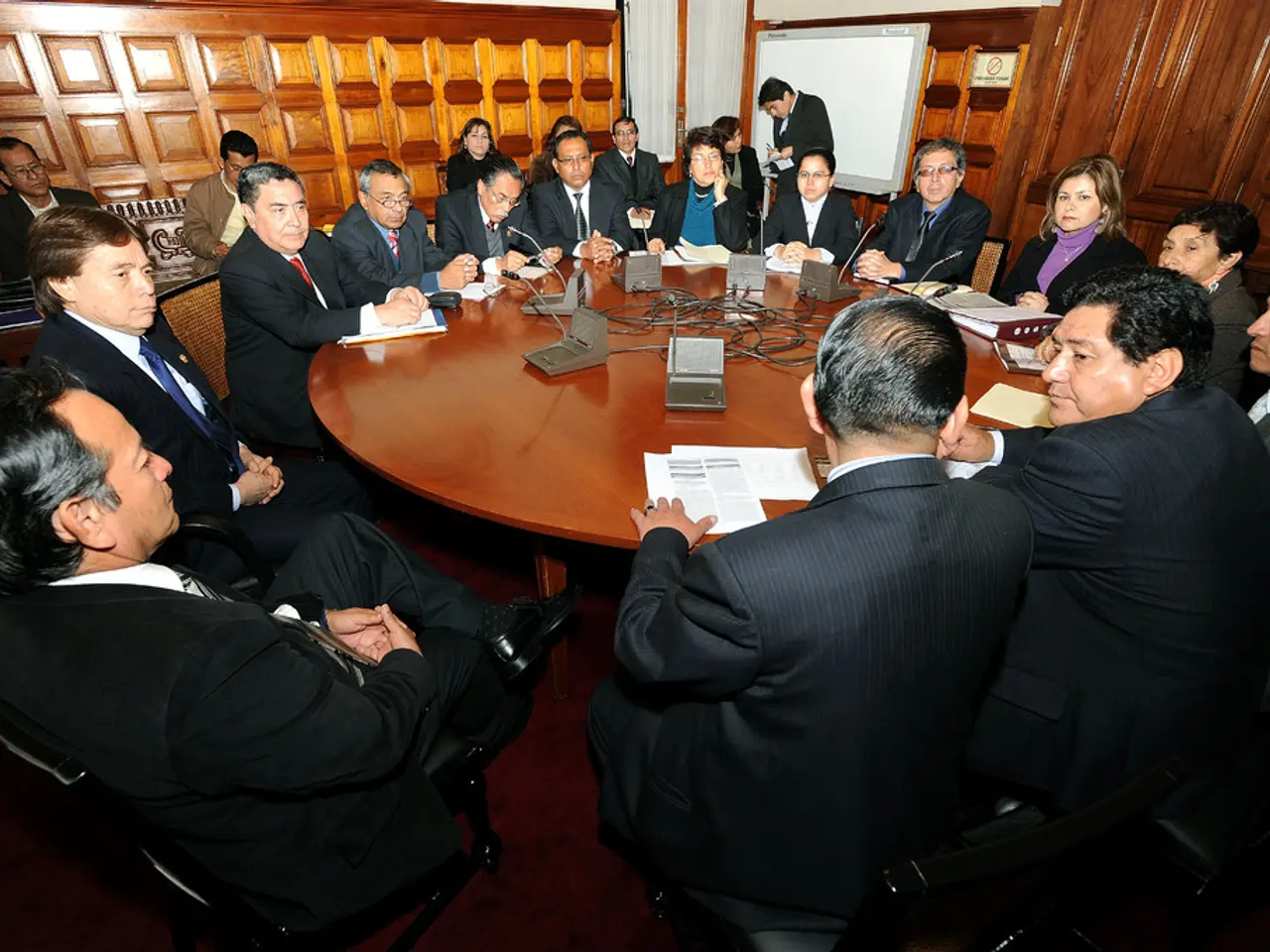Immediate Post-Alaska Encounter Considered for Trump-Putin-Zelensky Summit
A trilateral summit between Donald Trump, Vladimir Putin, and Volodymyr Zelensky is being proposed, though no official location or date has been set for the meeting. The proposed summit follows separate summits between Trump and Zelensky in Washington, and between Trump and Putin in Alaska, in August 2025.
The goal of the summit is to facilitate peace talks for the ongoing conflict between Russia and Ukraine. However, Putin has not explicitly agreed to meet Zelensky, and Moscow has conditioned such talks on security guarantees. Ukraine, on the other hand, has insisted on its sovereign territorial integrity, rejecting any concessions of the Donbas region claimed by Russia.
The negotiations are fraught with challenges. Putin appears reluctant to show Zelensky equal respect, creating an imbalance in negotiating power. Ukraine also seeks detailed security guarantees to prevent future invasions, with the U.S. and European partners preparing proposals. Additionally, ongoing military hostilities, including drone and missile strikes, have added tension to the diplomatic environment.
The outcome of such summits is uncertain. Trump has expressed optimism that both Putin and Zelensky want peace and can "get along" in negotiations. However, some observers perceive Russia as buying time rather than engaging actively in peace talks. If a bilateral Putin-Zelensky meeting occurs, it could set the foundation for a broader trilateral discussion including Trump.
The talks might progress to a peace deal involving security guarantees and political compromises, or they could stall due to unresolved territorial disputes and mutual distrust. The White House has previously stated that a peace deal on Ukraine would involve "some territorial exchange," a statement that has been met with resistance from Kyiv and its European allies.
Trump has warned that there won't be a second meeting if he "doesn't get the desired answers." He has also stated that he would call Zelensky after his meeting with Putin, followed by calls to European leaders. The French leader, Emmanuel Macron, added that President Trump made it clear that the U.S. wants to achieve a ceasefire at the Alaska meeting.
Russia insists on international recognition of Crimea, Donetsk, Luhansk, Zaporizhzhia, and Kherson regions and the full withdrawal of Ukrainian troops from the last four regions. Zelensky has expressed openness to meetings in both bilateral and trilateral formats. The Ukrainian president has emphasized that Kyiv will never recognize territories lost to Russia, calling it one of the red lines.
The U.S. Treasury Secretary, Steven Mnuchin, has suggested that sanctions against Russia could be tightened or eased depending on the outcome of the summit. He has urged European countries to be ready to impose higher tariffs on countries buying Russian energy if the meeting goes poorly.
In summary, while an overarching trilateral summit is envisioned to promote peace in Ukraine, key details—such as venue, timing, and agreements—remain unsettled amid continuing conflict and diplomatic complexity. The outcome of the summit could have significant implications for the future of Ukraine and its relations with both Russia and the U.S.
- The ongoing conflict between Russia and Ukraine, fueled by war-and-conflicts, has led to a proposed trilateral summit involving policy-and-legislation, as discussions centered around peace talks and security guarantees will be a crucial part of the negotiations.
- Politics plays a significant role in the summit negotiations, as it becomes evident that Putin refrains from showing Zelensky equal respect, potentially shaping the balance of power and influencing the upcoming peace deal.
- General news sources report that the U.S. Treasury Secretary, Steven Mnuchin, has linked the outcome of the summit to potential changes in policy-and-legislation regarding sanctions against Russia, adding an economic dimension to the talks.







